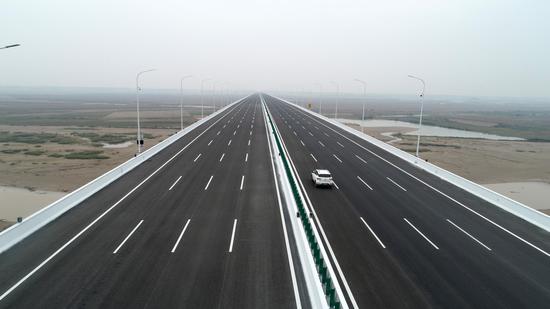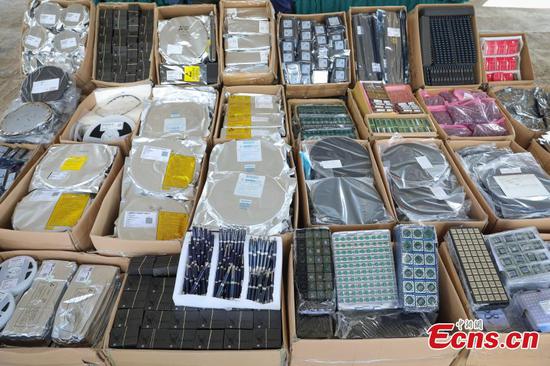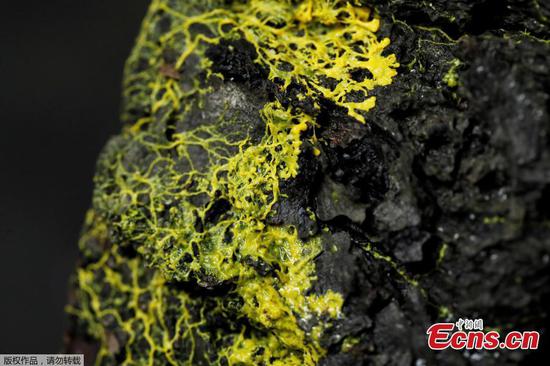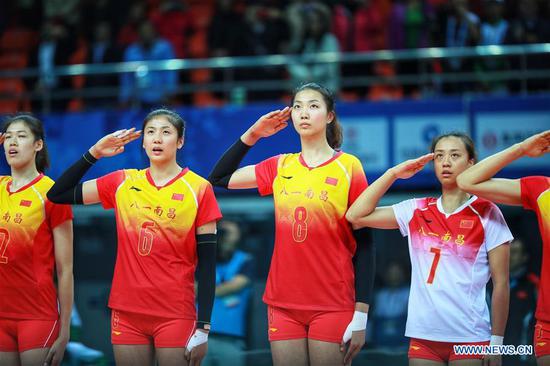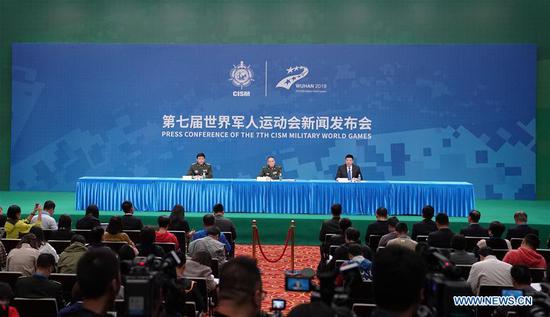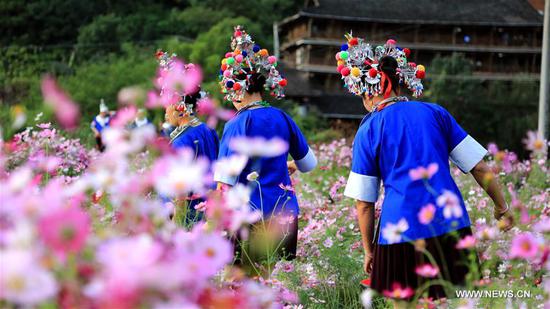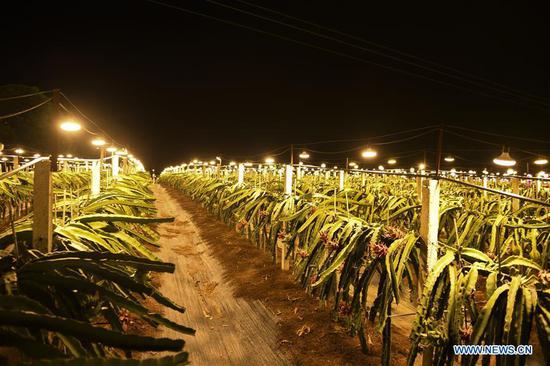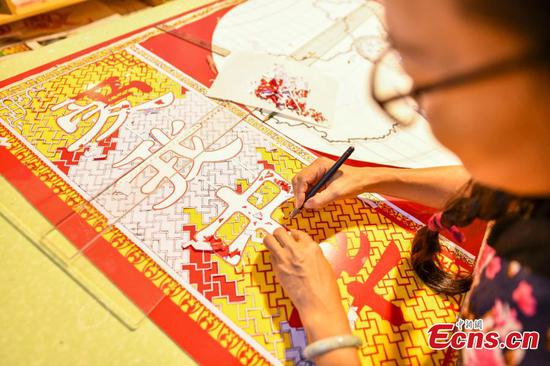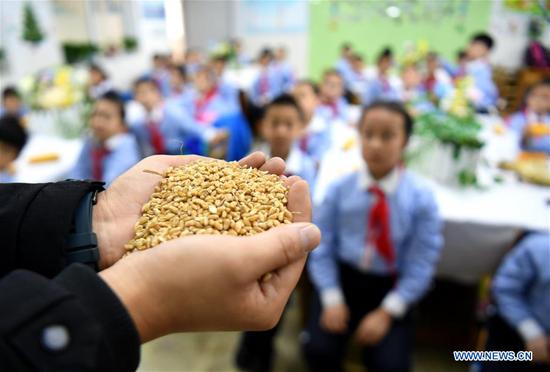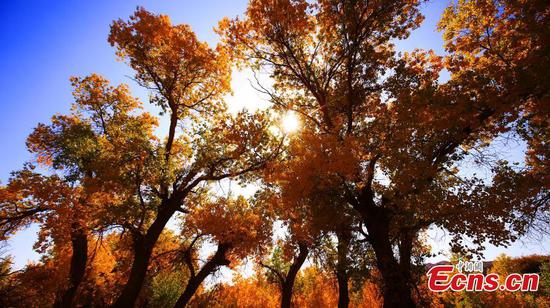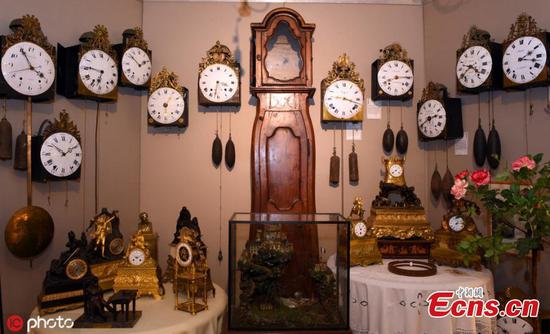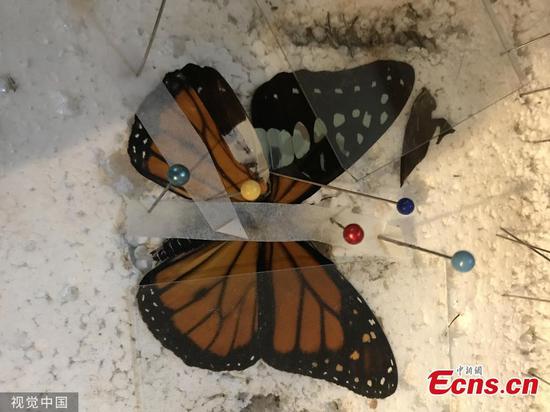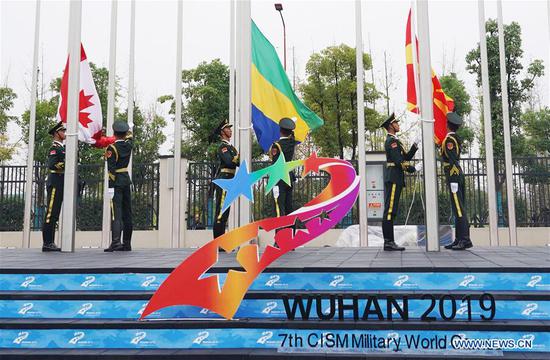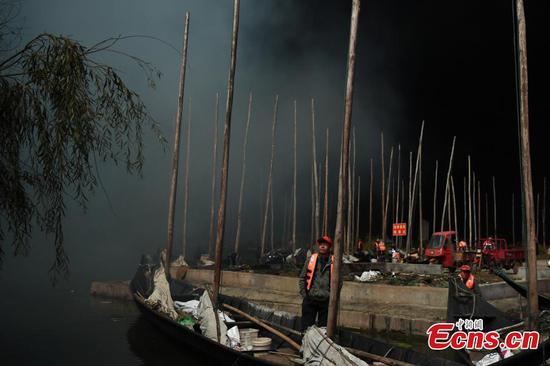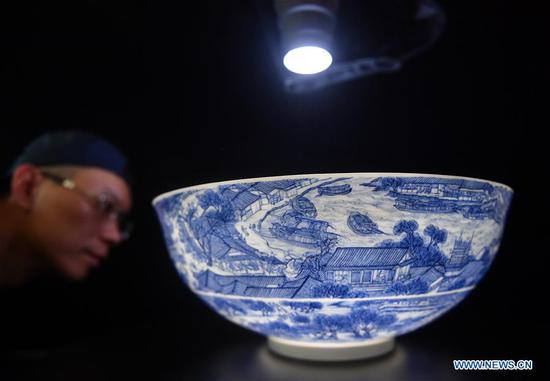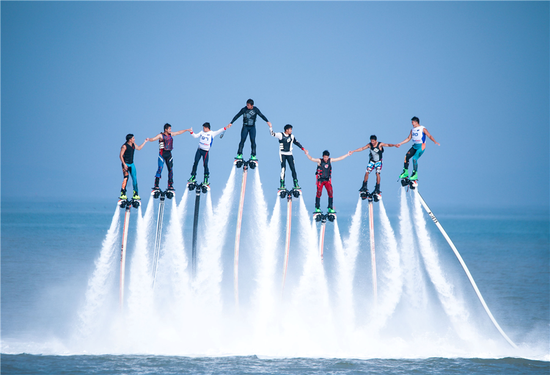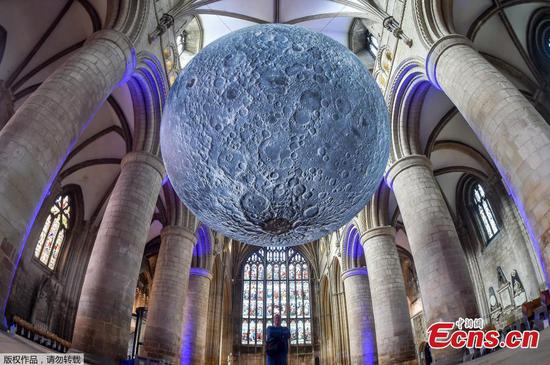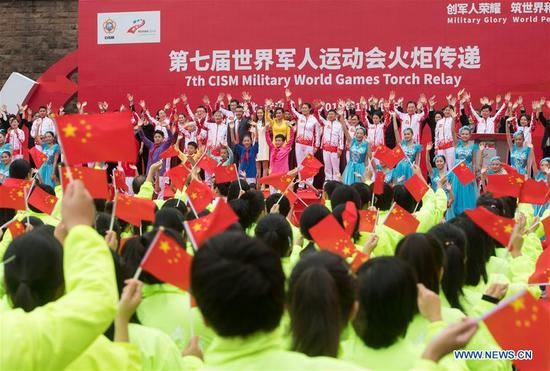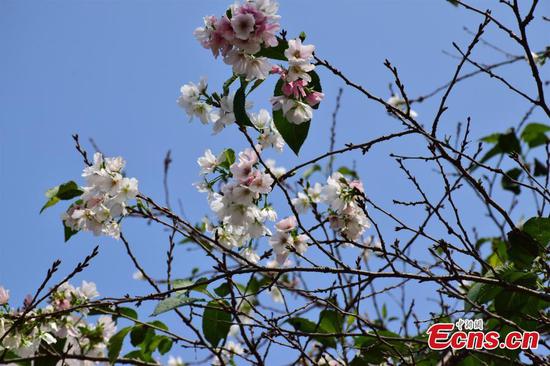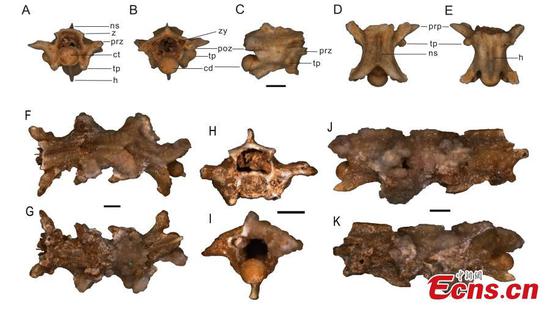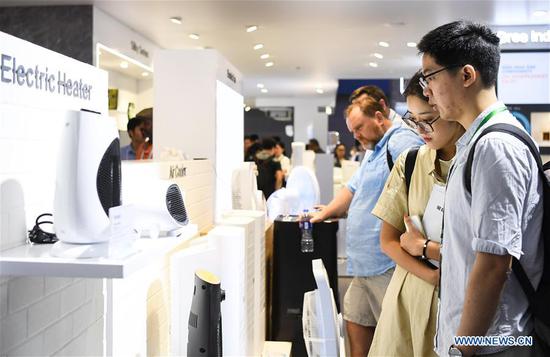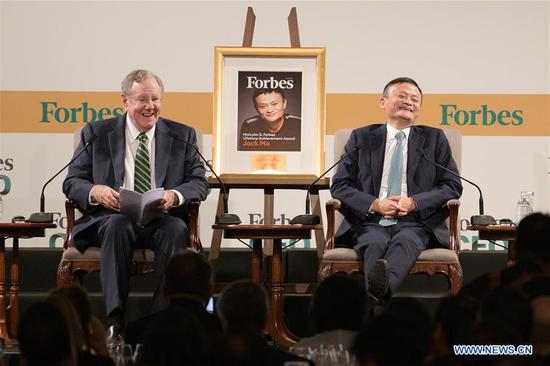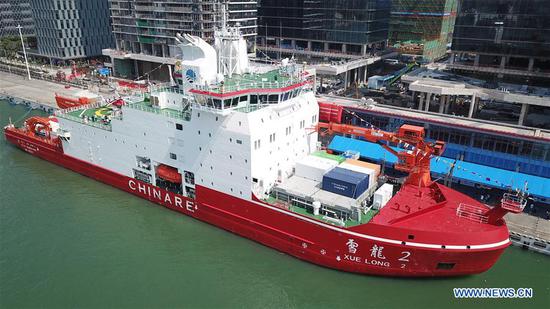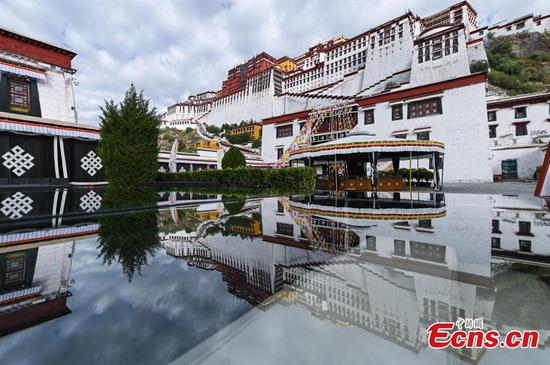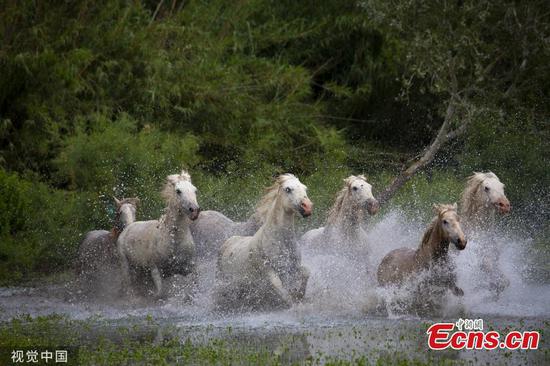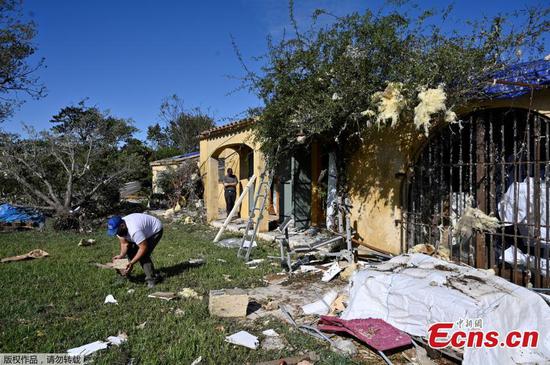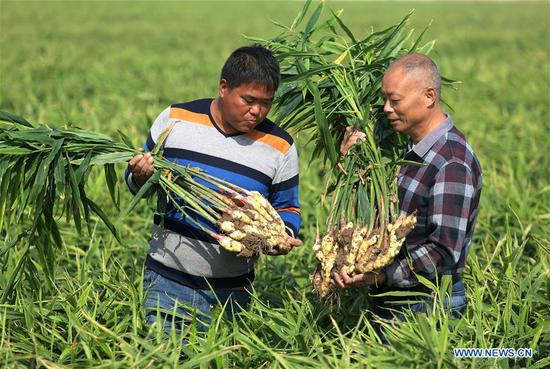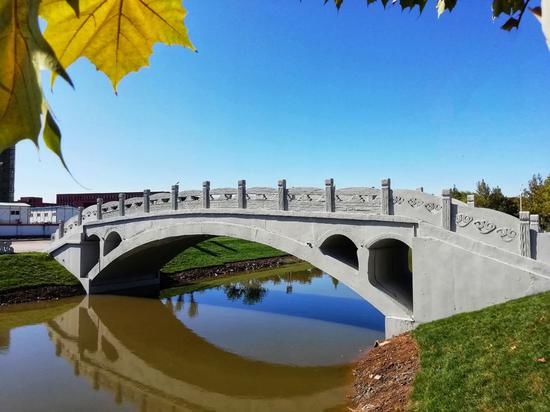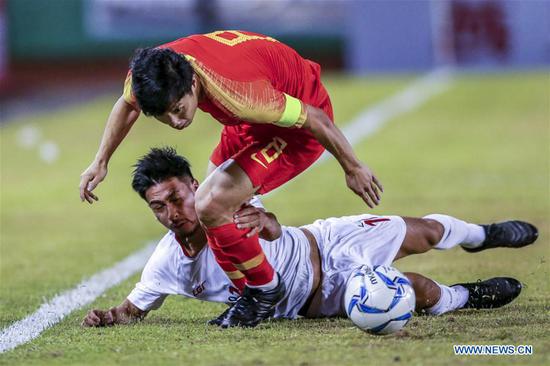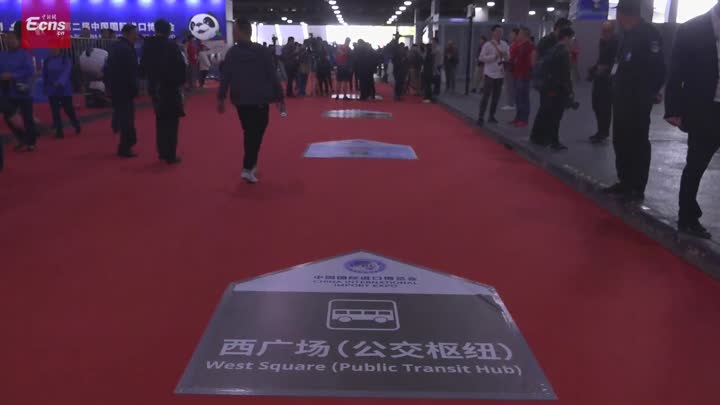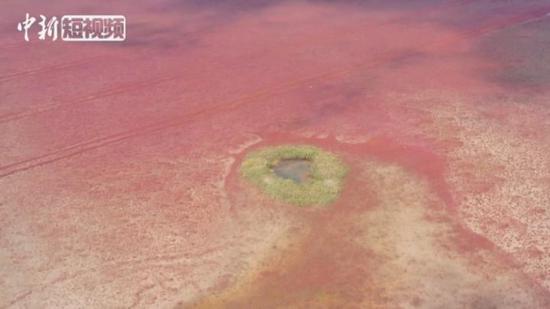Young protesters don't realize city more democratic now, analysts say
Amid the ongoing chaos on Hong Kong's streets, Britain's Union Jack and America's Stars and Stripes flags have become common symbols of defiance.
Protesters are heard singing God Save the Queen and The Star-Spangled Banner. The aim in either case appears to be to draw the attention of British and U.S. officialdom to the anti-government campaign
Many who possess British National (Overseas) passports are even demanding that the United Kingdom grant them full British citizenship.
One of Hong Kong's most prominent activists, Joshua Wong Chifung, testified in Washington before the United States' Congressional-Executive Commission on China, urging U.S. lawmakers to pass the Hong Kong Human Rights and Democracy Act of 2019. The proposed act was passed on Tuesday by the U.S. House of Representatives and awaits action by the U.S. Senate. The legislation, if passed by the Senate, would require the U.S. president's signature before taking effect.
In an article published by the South China Morning Post on Sept 23, Mike Rowse, the CEO of Treloar Enterprises, wrote that it is fanciful in the extreme to suppose the U.S. would throw open its doors to large numbers of migrants from Hong Kong.
Rowse, former director-general of InvestHK, a department of the Hong Kong government, said: "It is time for some Hong Kongers to forget their dreams that outsiders are going to ride in on white steeds and solve all their problems.
"The reality is, we are part of China, now and forevermore. The Basic Law gives us all that we realistically could want," said Rowse, who has lived in Hong Kong since 1972. He became the first foreigner from Hong Kong to become a naturalized citizen of China after the handover in 1997.
"Our best course of action is to cherish it, and nourish it. If we run into difficulties, the only capital city worth visiting is our own, in Beijing, not Washington, not London or Berlin or Ottawa or Canberra."
Among some, there nonetheless remains a yearning for Hong Kong's days under British colonial rule.
However, Peter Bentley, a Hong Kong permanent resident of British origin who has lived in the city for nearly 40 years, said, "During the British colonial period, which lasted for about 150 years, Britain did nothing to introduce democracy to Hong Kong."
He added that the British government ignored calls for direct elections after World War II.
Mark Aitchison Young, governor of the colony between 1941 and 1947, made a proposal aimed at political reform in Hong Kong in 1946. He called for establishment of a municipal council comprising a majority elected from among the public at large. The proposal was shelved in 1952 under the governance of Young's successor, Alexander Grantham.
"Actually, Hong Kong is much more democratic now than it was when the British were here," Bentley said. "Now things have actually got better in Hong Kong. We have more direct elections, we have geographical constituencies, we have local district council elections which are all one man, one vote."
Lau Siu-kai, vice-president of the Chinese Association of Hong Kong and Macao Studies, the leading think tank on local affairs, said the protesters are not really calling for a return of colonial rule.
"It's more like a tactic," Lau said. "They whitewashed the colonial governance to smear the current administration. This is to pressure the government of the Hong Kong Special Administrative Region and the central government to meet their demands."
Lau said the colonial era was not as good as some claim, whether considering democracy, freedom or the rule of law.
During the greater part of the colonial era, neither the governors nor the members of the Legislative Council were elected by the public. Criticizing the government would lead to stern consequences. There also was racial discrimination, with even the courts favoring Caucasians, said Lau.









